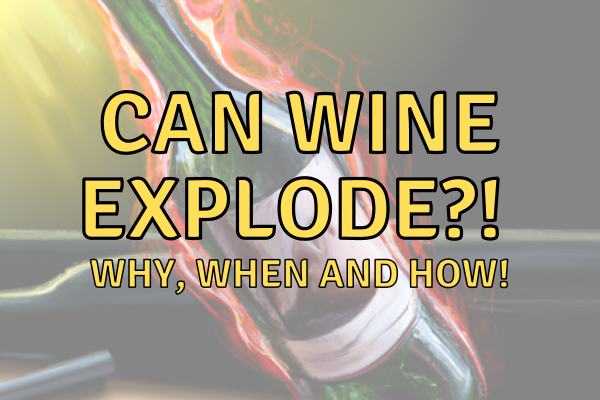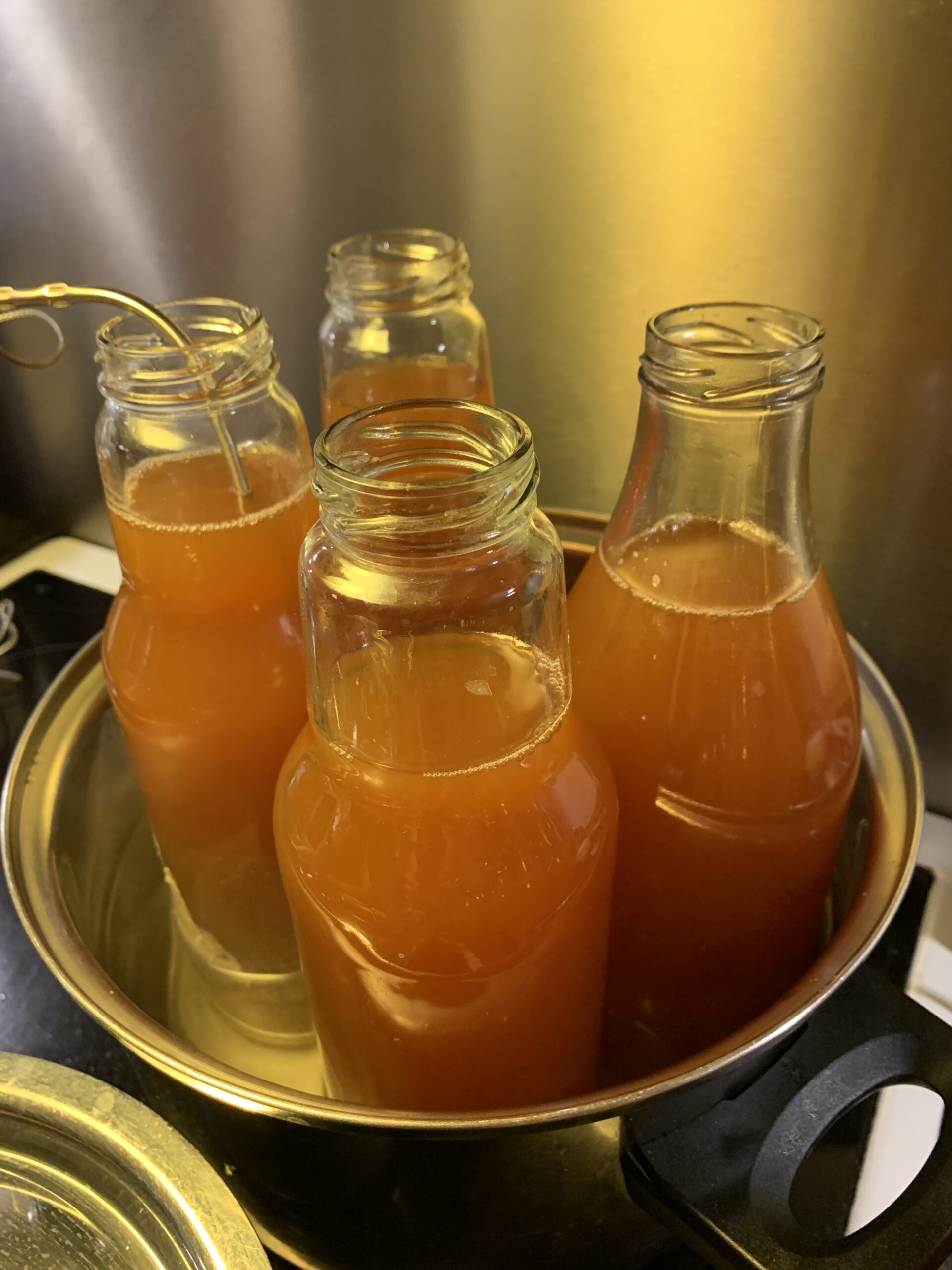Have you ever been worried about leaving a bottle of wine in a hot car? You might think it’s no big deal, but your fear is justified!
In this article, you’ll learn the science behind why leaving a bottle of wine in a hot car can be dangerous.
From understanding the risks to knowing which wines are at risk, this article will give you the facts you need to safely transport your favorite bottles.
What happens if unopened wine gets too warm?
When unopened wine is exposed to heat, it normally does not explode. However, the heat causes a slight acceleration of the aging process which changes the taste and quality of wine. Additionally, high temperatures may damage the wine stopper cork resulting in oxidation and spoilage of the wine.
It’s essential to keep your unopened wine cool to preserve its quality and taste. Make sure you store your wine in a dark and cool place with low humidity levels. Keep them away from direct sunlight or any source of heat to ensure that they stay fresh for a longer time.
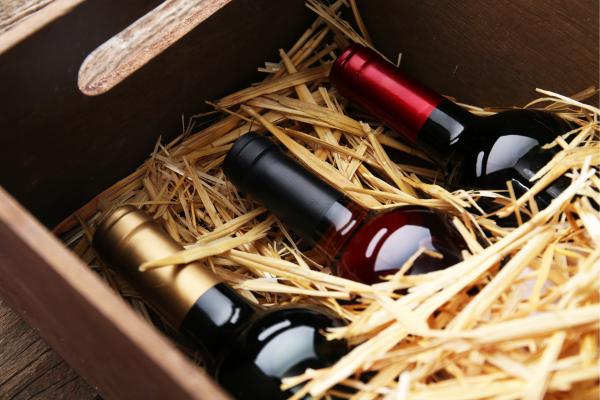
Preventing any kind of damage to your unopened wine is necessary if you don’t want to miss out on its authentic flavor and aroma.
Place your wines in an insulated cooler or cold storage during transportation and long trips. Keeping these tips in mind will save you from worrying about losing your favorite bottle due to inadequate storage techniques that harm its freshness.
Looks like the wine bottle is trying to become a firecracker, but it needs a bit more heat to really blow up the party.
How hot should it be before a wine bottle explodes?
At what temperature does a wine bottle explode? The answer is not straightforward as it depends on the bottle and its contents. Red wines, for example, are more likely to heat up quickly in the sun and reach their breaking point faster than white wines.
Furthermore, sparkling wines have a lower threshold because of the pressure from carbon dioxide. Generally, above 173°F, alcohol evaporates rapidly, which increases the pressure inside a sealed bottle and leads to an explosion.
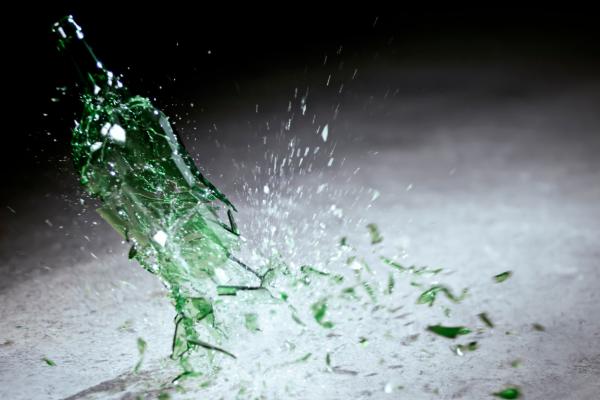
It is important to note that other factors can also contribute to a wine bottle’s ability to withstand high temperatures beyond its maximum limits.
For instance, thicker glass bottles are less likely to burst than thin ones. So, it isn’t just about the temperature outside but also how well-made your wine bottle is.
According to wine expert Ben Thomsen: “Wine should not be exposed to extreme cold or heat…The ideal storage temperature for red wines range between 56 and 68°F…” therefore one should always store their wine in cool shaded areas away from direct sunlight in order to maintain its flavor and integrity.
Leaving wine in a hot car is like playing Russian roulette with your taste buds.
How long can you leave wine in a hot car?
During the summer months, many people worry about leaving wine in their cars for extended periods.
Can wine explode if left in a hot car? Exposing wine to high temperatures can cause its flavor profile to change and even render it undrinkable, but exploding bottles are rare. Nevertheless, it is best not to leave wine in a hot car for extended periods.
If wine is left in a hot car for too long, the heat can cause the air inside the bottle to expand and push against the cork or cap, which could potentially pop off. This is more likely to occur if the bottle is nearly full or under pressure from carbonation.
However, it would require very high temperatures, most of which would be enough to ruin the wine’s quality before causing an explosion.
It is recommended that you do not leave wine in your car for longer than is necessary during warm weather, especially on particularly scorching days.
On average, a few hours maximum should be safe and not affect your wine’s flavor profile or structural integrity.
If you anticipate needing to keep your wine stored at higher temperatures for an extended period of time, consider investing in an insulated container designed explicitly for transporting perishable items.
Pro Tip: Always try to store your wine carefully and handle bottles gently to avoid any unexpected breakages whilst travelling with them.
Why bother protecting the wine in a hot car? It’s already heated and ready to drink!
How do you protect wine in a hot car?
When it comes to transporting wine during hot weather conditions, a crucial question arises: Will wine explode in a hot car?
Here is a 4-step guide on how to protect your precious bottles of wine during transportation on a scorching day:
- Use an insulated bag: Insulated bags are an excellent option to transport wine bottles as they keep the bottles at a consistent temperature, preventing them from heating up.
- Transport in a cooler: An alternative way of ensuring the wines’ protection is by keeping them in an ice-filled cooler, which will keep the air-conditioned while you travel.
- Bucket of water: Submerging the bottle in cold water can keep it cool and prevent spoilage or explosion.
- Wrap in tin foil: Wrapping the wine bottle with aluminium foil can shield it from sun exposure and heat.
It’s important to note that placing wines inside the trunk of your car is better than keeping it at the back seat since heat tends to be more concentrated there due to exposure from windows.
In addition, avoid transporting wines during peak times when temperatures are at their highest.
Don’t let your fear of missing out on enjoying that perfect bottle at your destination come true. Protect your prized possession with these easy tips before hitting the road!
Sure, if you want your fridge to remind you of that time you left a half-empty bottle of wine in a hot car.
Can you put warm wine back in the fridge?
Storing warm wine back in the fridge – Good or Bad?
It is common knowledge that storing wine at room temperature for a long time can spoil its taste. Similarly, putting warm wine in the fridge immediately can also affect the wine’s quality.
This is because sudden fluctuations in temperature can damage the wine’s flavor and texture. Nonetheless, once cooled down to an adequate temperature, placing it in the fridge should not be an issue.
If by any chance you leave your opened bottle of red or white in a hot car all day, and wonder if it’s still safe to place it back into the fridge?
The answer is yes, but only if placed at the appropriate temperature. Wine will stay fresh for longer when stored within the recommended temperature range. Therefore, it’s essential to store wines at their ideal serving temperatures.

To ensure wines remain easy on your palette and retain their original aroma and taste profile, it’s best practice to make sure they are stored correctly at all times. As we know that warm temperatures could potentially destroy a delicate bottle of wine.
Do not miss out on enjoying a perfect glass of delicious wine. Ensure that you handle your bottles with care and store them correctly.
By following these steps ensures prolonged life for every beverage guests enjoy while indulging in good food and conversations.
“If you heat up wine, it’s like asking a chemical reaction to go boom and turn your car into a winery.”
What happens chemically when wine is heated?
Wine’s chemical reactions under heat are similar to oxidation and UV exposure – break down of larger molecules cause reactions that change the color and taste. As wine is heated, alcohol evaporates, and acidity increases, causing bitterness. Additionally, tannins in red wine change – typically making the texture feel “cooked” or over-oaked.
It is important to note that temperature fluctuations should be avoided as they can drastically affect wine quality. Exposure to extreme temperatures will damage and expand corks causing spoilage or leakage. Once opened, wines should be stored in a moderately cool place with consistent temperature away from direct sunlight.

A true story worth sharing is when a man accidentally left two cases of red wine in his car on a hot summer day for an hour. Upon removing it from the car he realized most bottles had exploded, spraying red liquid everywhere – which was not only a loss of money but also an unpleasant experience.
Your wine bottle may not explode, but if it’s been heat damaged, it’s as useless as a corkscrew in a screw top bottle.
How to tell if wine is heat damaged?
Heat damage in wine can lead to a flat taste, lacking aroma and depth. To identify heat-damaged wine, one should look for signs such as cork leakage, shrinkage or being pushed out of its place. Labels could be wrinkled or show signs of seepage, indicating the presence of high temperature. Another indication is a sticky residue under the bottle caused by evaporation through the porous cork.
When exposed to high temperatures, wine can become damaged easily, leading to undesirable flavours and aromas that compromise any previous quality. T
o prevent this outcome, avoid exposing your wine bottles to extreme temperatures, especially above 70F degrees. If you find that your bottle has been left in an environment with high temperature for an extended period of time and it displays unusual characteristics when opened or tasted, assess whether it may be damaged beyond repair.
Don’t miss out on the enjoyment of investing in a good bottle of wine by allowing it go to waste through exposure to high temperatures. By taking simple steps like keeping your bottles away from direct sunlight and not leaving them in hot cars, you can enjoy a full-bodied glass of richly-flavoured wine with unmatched depth and character at any time.
Room temperature wine? More like a corked time bomb just waiting to disappoint.
Does wine go bad at room temperature?
Wine does not go bad at room temperature, but its taste, quality, and aroma may deteriorate over time, depending on several factors such as heat, light exposure, and storage conditions.
High temperatures can cause the wine to age prematurely, turn brownish in color and acquire a flat taste. However, eventually, wine will go bad if exposed to extreme temperatures for extended periods of time. That said it takes years if not exposed to light.
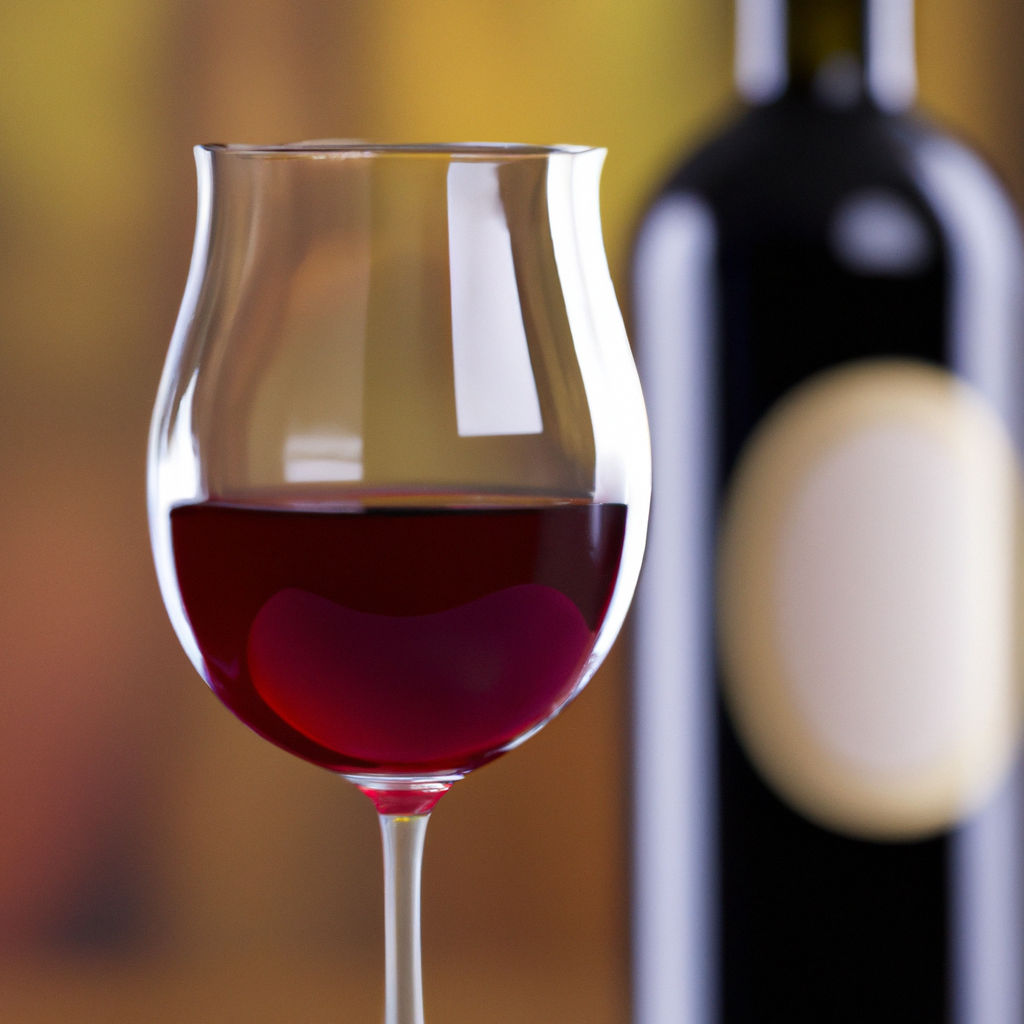
To prevent wine from spoiling at room temperature or hotter climates, the best solution is to store them in a cool place with controlled humidity levels. According to CNBC News, “Heat or exposure to sunlight accelerates the oxidation process that causes deterioration in flavor and color…”
Sorry, but there’s no fixing a hot mess like heat-damaged wine.
Can you fix heat damaged wine?
When wine is exposed to high temperatures, its flavor and aroma can be altered due to heat damage. While it’s challenging to fix heat-damaged wine, some techniques can help restore its taste. For instance, you can refrigerate the bottle and avoid exposing it to sunlight. Or you could decant the wine, allowing it to aerate and potentially remove some of the unpleasant flavors.
However, if the wine has been severely damaged by heat, trying to fix it may not be worth your time or effort. Instead, consider using it in cooking dishes that could benefit from its flavor profile.
Pro Tip: When storing wine, keep it away from heat sources such as windows or heaters. Opt for a cool dark place with a consistent temperature.
Storing wine properly is like finding a good hiding spot for your chocolate – out of direct sunlight and away from heat, but within easy reach for emergencies.
How should you store wine for optimal shelf life?
When ensuring optimal shelf life for wine, temperature and light are key factors to consider. Red wine should be stored between 45°F-65°F (7°C-18°C), white wine around 55°F (13°C), sparkling wine between 39°F-43°F (4°C-6°C), fortified wine between 55°F-57°F (13°C-14°C).
Moreover, storing wines in a dark area with minimal exposure to sunlight can also prolong their shelf life. Avoid storing them in hot environments like cars as they may cause undesirable changes in the color, flavor, and aroma. Instead, store your bottles horizontally and away from vibrations or excessive movements.
It’s important to bear in mind that aging is not always equivalent to better quality. While some wines benefit from aging, others are ready for consumption upon purchase. For instance, while Barolo is suitable for cellaring for up to twenty years, Beaujolais Nouveau should be consumed soon after release due to its short shelf life.
In the early nineteenth century, it was typical of railway companies in Europe to transport casks of red wines from Southern France by wagon. During warmer months when temperatures exceeded optimal storage conditions, winemakers discovered that adding whiskey would make wines less perishable. This led to the creation of fortified wines such as Port and Sherry.
Looks like leaving wine in a hot car is a recipe for disaster, unless of course, you enjoy sipping on a glass of car-infused vinegar.
Conclusion
Wines are unlikely to explode in hot cars, however, one must exercise caution. Explosions occur rarely but mostly with sparkling wines due to their carbonation. Leaking beer cans happen more often than wine explosions. It is best practice to store wine at a temperature around 55°F and avoid exposing them to direct sunlight.
Pro Tip: In hotter climates, it may be wise to transport wines in insulated cooler bags or boxes to keep them at an appropriate temperature.
Frequently Asked Questions
Q: Can wine explode in a hot car?
A: Yes, wine can potentially explode in a hot car, especially if the temperature exceeds 85 degrees Fahrenheit.
Q: Why can wine explode in a hot car?
A: Wine bottles are not designed to withstand extreme temperatures. When the wine inside the bottle heats up, it expands and creates pressure, which can potentially cause the bottle to burst.
Q: What are the consequences of wine exploding in a hot car?
A: Wine exploding in a hot car can cause a mess and damage to the vehicle’s interior. It can also be dangerous if anyone is in the car at the time of the explosion and is hit with glass shards or liquid.
Q: How can I prevent wine from exploding in a hot car?
A: The best way to prevent wine from exploding in a hot car is to avoid leaving wine in the car in the first place. If you must transport wine in your car, bring a cooler or insulated bag and keep the wine out of direct sunlight.
Q: Is it safe to drink wine that has been in a hot car?
A: It is not recommended to drink wine that has been exposed to extreme temperatures, as it can spoil the wine and alter its taste. It is best to discard wine that has been in a hot car for an extended period of time.
Q: Does the type of wine affect its likelihood to explode in a hot car?
A: The type of wine does not necessarily affect its likelihood to explode in a hot car, as all wine bottles are susceptible to pressure buildup when exposed to extreme temperatures.

